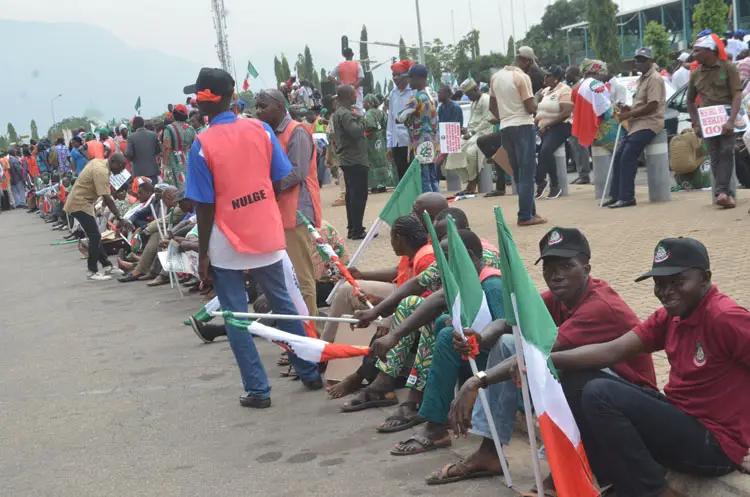
The Nigeria Labour Congress (NLC) has declared an indefinite nationwide strike starting on Monday, June 3, 2024, due to the Federal Government’s refusal to increase the proposed minimum wage above N60,000.
Despite the government’s final offer of N60,000, which included a recent increase from an initial N57,000, the labour unions found the proposal insufficient, setting a new proposal at N494,000.
The Evolution of Nigeria’s Minimum Wage
Early Beginnings
The concept of a minimum wage in Nigeria dates back to the 1950s. The late Chief Obafemi Awolowo, as Premier of the Western Region, implemented the first minimum wage policy in 1954. Western Nigerian workers received a minimum wage that was double the amount paid to their counterparts in other regions. This initial wage policy set a precedent and sparked ongoing discussions about fair labor compensation in the country.
Post-Independence Struggles
Following Nigeria’s independence in 1960, the push for a national minimum wage continued. In 1959, Awolowo, then the President of the Action Group, campaigned vigorously for a five-pound minimum wage for federal workers. Although he lost the 1959 elections to Sir Abubakar Tafawa Balewa, the issue of a national minimum wage remained a significant political agenda.
The First National Minimum Wage Law
The first National Minimum Wage Law was enacted by President Shehu Shagari in September 1981, spurred by the advocacy of the Nigerian Labour Congress led by Hassan Sunmonu. The law set a minimum wage of 125 naira per month, equivalent to approximately US$204 at the time.
Subsequent Revisions
Over the years, the minimum wage has undergone several revisions:
2000: Increased to N5,500.
2011: Under President Goodluck Jonathan, it was raised to N18,000.
2019: The National Minimum Wage Act signed by President Muhammadu Buhari established a new wage of N30,000 per month.
The Current Debate
In January 2024, the federal government formed a 37-member tripartite committee to review the National Minimum Wage. However, the committee has not yet reached an agreement. The NLC and Trade Union Congress (TUC) have set a deadline of May 31 for the government to establish a new wage policy. The unions are demanding a minimum wage of at least N60,000.
Some states have unilaterally announced new minimum wages. For example, Edo State approved a new wage of N70,000 effective May 1, 2024, while Lagos State has been paying a wage award of N35,000 since January 2024.
The discussions about the minimum wage are fraught with tension, particularly between state and federal governments. State governments often argue they cannot afford higher wages, while the federal government usually proposes higher rates. This discord reflects a long-standing issue in Nigeria’s wage policy, where economic realities and political promises often clash.
Source | Vanguard










